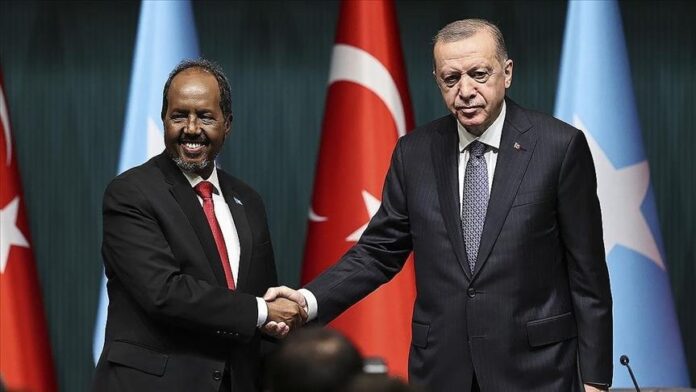By Mohamud Ali
Horn of Africa Media and Communication Specialist
After decades of conflict and humanitarian crises, Somalia is currently facing one of the gravest threats to its stability—an existential danger posed by the armed Islamist group al-Shabaab. This group’s resurgence threatens Somalia’s sovereignty and serves as a chilling warning to those who have long supported Somalia’s state-building efforts both domestically and internationally. The recent wave of attacks by al-Shabaab on towns and villages surrounding the capital evokes uncomfortable memories of Afghanistan in 2021, where, after two decades of insurgency, the Taliban toppled the U.S.-backed government in Kabul.
Observers note that this mounting security threat coincides with internal political discord. The Somali leadership appears increasingly preoccupied with political maneuvering. President Hassan Sheikh Mohamud is pushing for a new electoral model—one person, one vote—while his critics argue for a more inclusive approach, accusing the president of attempting to consolidate power. Somalia has not held a direct, nationwide election since 1969.
Amid these tensions, one foreign actor has drawn significant attention: Turkey. In February 2024, Somalia signed a landmark 10-year defense and economic cooperation agreement with Turkey. The agreement grants Ankara a role in maritime security, energy exploration, and military training. For Somalia, which is striving to rebuild its naval capacity and unlock natural resource potential, this partnership offers a critical lifeline. Turkey’s involvement transcends traditional diplomacy—it signals both a long-term strategic vision for the Horn of Africa and Somalia’s desire to assert control over its territorial waters and resources.
Turkey is also committed to helping Somalia confront the al-Qaeda-affiliated al-Shabaab. Its advanced drone technology—particularly the Bayraktar TB2—has shifted the tide in several global conflicts, including in Libya, Syria, Azerbaijan, Ukraine, and Ethiopia during the Tigray conflict.
However, Turkey’s relationship with Somalia extends beyond military support. Since the 2011 famine, when then-Prime Minister (now President) Erdoğan led a 200-member delegation to Mogadishu, Turkey has invested heavily in infrastructure, humanitarian aid, and state-building. Unlike the Western powers’ decades-old policy which is solely focused on security, Turkey’s approach could be a game-changer—anchored in mutual respect and shared strategic interest.
With its successful management of Mogadishu’s international airport and seaport, its ongoing military training programs, and its mediation role in the Somalia-Ethiopia dispute over the Somaliland MOU, Turkey is well-positioned to support Somalia’s journey toward stability and sovereignty. Yet, this engagement is both promising and precarious. If Ankara’s investments are to succeed, security must become the foundation—not just a supporting pillar.
The coming months will test Somalia’s resilience. The al-Shabaab threat is not just military; it is psychological and political. While Turkish drones and military advisers may provide temporary advantages, Somalia’s true battle lies in strengthening institutions, bridging political divides, and earning the trust of its people.
In this high-stakes equation, Turkey’s role could be decisive. Whether it leads to sustainable peace or becomes another missed opportunity will depend largely on Somalia’s ability to confront internal challenges and bring political stability, while embracing external partnerships—not as lifelines, but as catalysts for long-term transformation.
About the Author
Mohamud is a seasoned media and communication specialist with extensive experience in journalism and strategic communication. He previously served as a Journalist and Planning Editor for the BBC East Africa bureau and held the position of Communications Manager at the British Embassy in Somalia.


